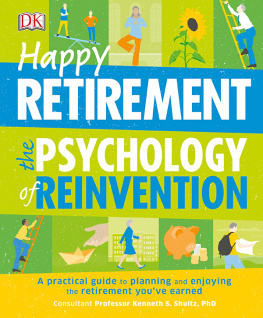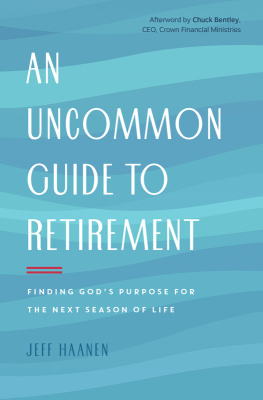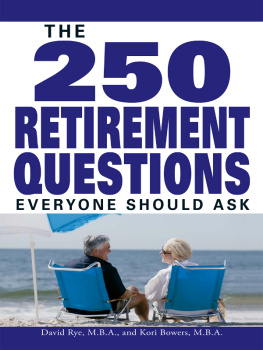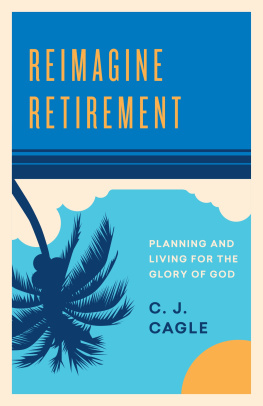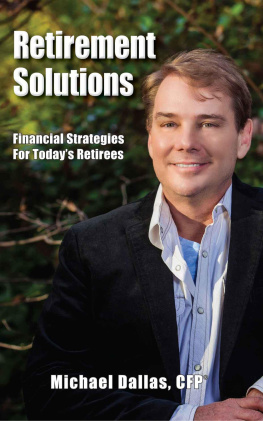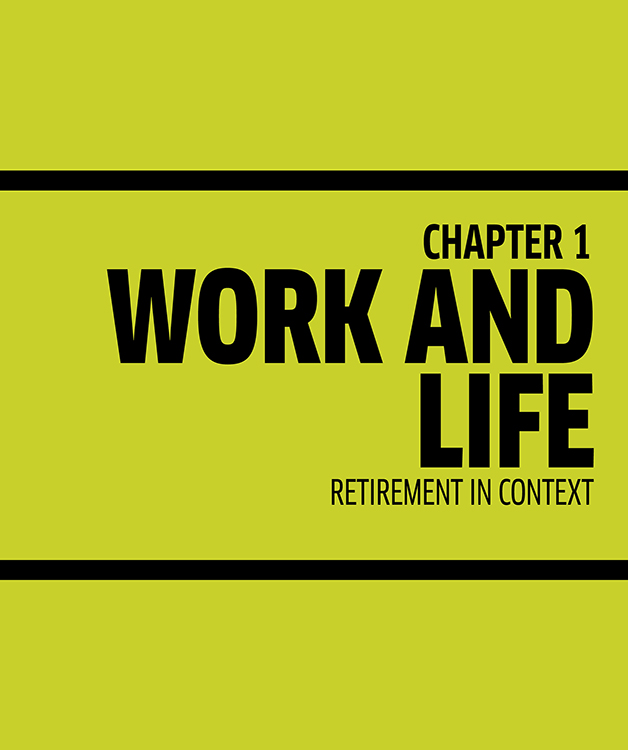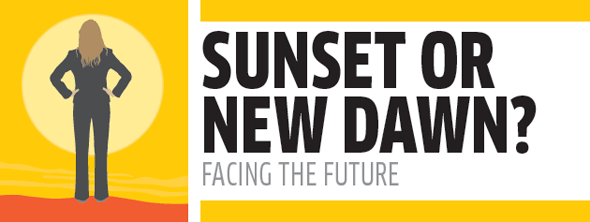HOW TO USE THIS eBOOK
Happy Retirement: The Psychology of Reinvention is an inspirational, easy-to-use eBook, packed with practical advice that's grounded in psychological research.
The eBook is divided into six chapters and more than 80 topics that cover every stage of retirementfrom planning and approaching the big day, to transitioning to your new life and discovering ways to reinvent yourself.
To navigate through the eBook, use the built-in links on the contents page. These will take you to the relevant chapter or topic. Cross-references embedded in the text also link to related topics or features in other parts of the eBook.
Throughout the eBook you will find infographics, self-analysis questionnaires, charts, and tables that make the scientific findings easy to understand and apply to your life. Many of these will enlarge for easier reading when you double tap on them. To continue reading, simply close the image using the X in the top corner.
Device Settings
We suggest that this eBook looks best on most devices with the following settings:
- White background
- Serif font (e.g., Georgia)
- Scrolling view off
- Justified text alignment (if your eBook reader has this feature)
- Smallest point size (particularly when scanning through the eBook)
- Publisher default setting to be switched on (if your eBook reader has this feature)
LONDON, NEW YORK, MELBOURNE,
MUNICH, AND DELHI
US Senior Editor Shannon Beatty
US Editor Rebecca Warren
Senior Editor Bob Bridle
Senior Art Editor Karen Constanti
Editorial Assistant Alice Kewellhampton
Jacket Art Editor Harriet Yeomans
Senior Producer, Pre-Production Tony Phipps
Senior Producer Stephanie McConnell
Creative Technical Support Sonia Charbonnier
Managing Editors Dawn Henderson, Stephanie Farrow
Managing Art Editor Christine Keilty
Art Director Maxine Pedliham
Publisher Peggy Vance
Written by Megan Kaye and Mike Annesley
Illustrations Keith Hagan
DIGITAL OPERATIONS, DELHI
Head of Digital Operations Manjari Hooda
Sr. Editorial Manager Lakshmi Rao
Producer Anusua Satpathi
Assistant Editor Aman Rayjada
Sr. Software Engineer Astha Rawal
Graphic Designer Nain Singh Rawat
DIGITAL PRODUCTION, LONDON
Sr. Digital Producer Miguel Cunha
Digital Producer William Jones
First American Edition, 2016
Published in the United States by DK Publishing,
345 Hudson Street, New York, NY 10014
Copyright 2016 Dorling Kindersley Limited
A Penguin Random House Company
All rights reserved.
Without limiting the rights under copyright reserved above,
no part of this publication may be reproduced, stored in or
introduced into a retrieval system, or transmitted in any form or
by any means (electronic, mechanical, photocopying, recording,
or otherwise) without the prior written permission of both the
copyright owner and the above publisher of this guide.
ISBN: 9781465438119
This digital edition published 2016
ISBN: 9781465452498
DK books are available at special discounts when purchased in bulk
for sales promotions, premiums, fund-raising, or educational use. For details, contact: DK Publishing Special Markets,
345 Hudson Street, New York, New York 10014
SpecialSales@dk.com
All images Dorling Kindersley Limited
For further information see: www.dkimages.com
A WORLD OF IDEAS
SEE ALL THERE IS TO KNOW
www.dk.com
A pproximately 25 years ago my father was offered an early retirement package at the age of 55. While physically he was ready to retire from a demanding job at the telephone company, psychologically he was not ready. I was just beginning my research career, and so my interest in the psychological aspects of the retirement process was piqued by my fathers experience. Much of the research on retirement at that time (in the early 1990s) was focused on health and wealth. That is, most economists believed that health and wealth were the driving forces behind the decision to retire. However, a quarter of a century later, and having published several books, book chapters, and numerous articles on the topic of the psychology of retirement since then, I am amazed at the dynamic nature of retirement in the 21st century, as well as the critical importance that psychological factors play in the transition to retirement.
Today retirement can take a number of different forms. This can include volunteer work, starting a second career, taking on the role of caregiver, or more likely, some combination of roles. Retirement has become a very individualized and personal journey for those making the transition from a career to that next phase of life.
Happy Retirement: The Psychology of Reinvention is ideal for anyone who is making the personal journey from full-time work to retirement. Every page is bursting with practical advice that, importantly, is based on a solid underpinning of the most recent and comprehensive scientific research on the psychology of retirement. The text is highly accessible and the scientific findings are translated into visually engaging graphics that everyone can understand.
The guide covers every stage of the retirement process. Chapter one puts work and retirement in the context of life in the 21st century. Then, chapter two focuses on the importance of early planning for retirement, while chapter three covers the key challenges in the lead-up to the big day. Next, chapter four discusses the transition from work to retirement and the unique challenges faced in the first days, weeks, and months after leaving full-time work. Chapter five then covers how best to grow psychologically into the role of retiree and the importance of looking after yourself, as well as those close to you. Finally, chapter six is about the many ways in which you can reinvent yourself in retirement and reach your maximum potential.
Happy Retirement: The Psychology of Reinvention serves as a comprehensive, accessible, research-grounded guide to the psychology of retirement for those increasing number of baby-boomers making the transition from worker to retiree.

Professor Kenneth S. Shultz, PhD

